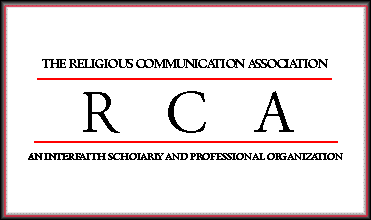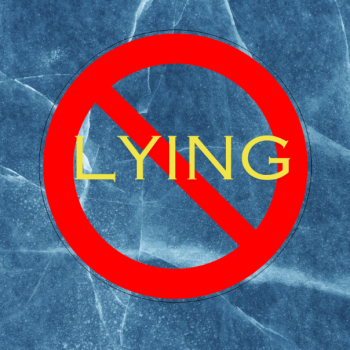By Andre E. Johnson
R3 Editor
Read the series here
I eagerly opened the email to read what he had to say. I thought he would apologize, but did not know how. Would he name the action? Would he offer words of contrition, regret, and disappointment? Would he own up to some biases that he may have had that led him to smack a man upside the head? While I did not know how he would say it, I did think that after he reflected on his actions, he would send me an apology—because after all—we are in the Religious Communication Association and associated with all religions is some sort of forgiveness component.
As one who has worked with peace and reconciliation efforts in the past and as one who believes wholeheartedly in the power of an apology, I read them, listen to them, and if directed at me, I am open to accept them. I have always believed and always taught that the art of forgiveness is one of the hardest things to do. Moreover, while the perpetrator cannot ever put a time limit on when her or his victim should forgive, for our own sakes and health, we, in our own time, should strive toward forgiveness. Therefore, to start down the road of forgiveness, I wanted to read his email and his apology.
Imagine my surprise at what I read—not a full-throated apology, but more of an excuse. Without going into full detail of the email he sent to me, the apology I felt was more of an excuse for his actions. He started the ‘apology’ not by apologizing, but by thanking me for my service to RCA. He further wrote of his joy in knowing me these last years and believed that RCA would ask me to serve an elected office down the road.
After the “introduction” of his email, he then turned to the part that interested me the most—“I also must apologize to you for my act today.” Further he wrote that his “head smack” was just his way of showing endearment because his family members engage in such hijinks. He further intimated that since Denise and I were enjoying our moment so much, he felt that it would be okay to smack me upside the head. Therefore, he wanted me to accept his apology because he was so sorry for his action. He closed the email by letting me know that he looks forward to working with me in RCA in years to come.
I did not respond immediately to his email. I could not—I needed some time to think on how I would respond. I do admit that the short email insulted me and spent more time I believed on justifying his actions than an outright apology. It actually made my relive some of my earlier feelings and needless to say, I was not in a forgiving spirit after reading my assailant’s apology.
The next day was one of affirmation and support. Apparently, the word had gotten around of my assault and many more people came to me and asked what happened. After getting some much-needed rest the night before, I felt good sharing what happened with anyone who asked. At the business meeting of the African American Communication and Culture Division of NCA, I announced to the group “what you have been hearing is true. A member of the Religious Communication Association assaulted me in the business meeting.” After audible gasps in the room and a muffled curse word or two, I further indicated that I would write about this and share my feelings on the R3 blog. After adjourning the meeting, people came to me and wanted to know more.
The support and loved shared in that room for those few minutes (we all had to get to another meeting) were so important. Instead of trying to figure out why he did what he did or asking me what I did, or not believing what happened, the people in that room, embraced and supported me like I have never experienced in an academic setting. I felt heard and understood as many of them invoked outrage and downright contempt at what happened.
Something else happened in that room that day. Something that I did not realize at the time would mean so much to me. Many just came up to me after the meeting and simply said, “I’m sorry—I am sorry that happened to you.” No qualification, no backhanded comment, no trying to figure it out first, many just simply said, “I am sorry.” This I heard from a few the previous day, but now a cacophony of voices telling me “I am sorry,” seemed more powerful in the room that day.
As I finished my next meeting, another person approached me. I only knew this person as an official from NCA who attended our meeting. She introduced herself as Nancy Kidd, Executive Director of NCA. She shared with me wh
at she heard about my assault and right after that, she quickly said, “I am sorry this happened to you.” Admittedly, I was surprised that word had quickly gotten around to have our Executive Director approached me about this. I had already planned to send an email to NCA officials about this incident, but it seemed as if they already knew and wanted to let me know that they knew. While there may be concerns that many have with our Executive Body, on this one, Nancy Kidd came to me directly to confirm what happened and to say, “I am sorry.”
In addition, she also asked if I would not mind if she called her friend, Janie Fritz, the Executive Secretary of the RCA to share with her the conversation we had. I told her yes that would be fine because I planned on talking with her and other officials of RCA myself anyway. After getting my confirmation that it would be fine to call Janie, she apologized again and left.
After that meeting, my official duties at the conference were over. I presented my papers, chaired and responded on panels, conducted the Division meeting and participated in the Caucus meeting. It was time to relax, hang out, and have more fun. I felt as if I missed out the night before, so I reasoned it was time to make up!
However, something started to happen throughout the evening. I had placed the incident of my assault in the back of my mind. I felt heard. I felt loved. I felt affirmed. I felt believed. I even felt good that our Executive Director in attending our Caucus meeting approached me to talk about my assault. Therefore, I did not feel a need to talk about this any longer, but something started to happen—people began to share their stories. People began to talk about their own assaults that have happened at academic meetings. One black man shared the story of a man that slapped him in the back. A black woman shared her story about a man who verbally accosted and berated her in another meeting. Others shared their stories and then I began to realize something else—not only was I not alone in this, but this seemed to be a trend—or at least this happens more frequently than we thought.
While listening to these others stories, I checked my phone. I noticed a number that was not familiar. Apparently, I missed the call but the caller did leave a voice mail. She said that she was calling in response to a call she received from Nancy Kidd. The caller was Janie Fritz, our Executive Secretary and Board member of RCA. She wanted to talk, but I did not have the time then because the next day, I traveled to Baltimore to present at the American Academy of Religion (AAR). In addition, my assailant’s email was on my mind and I knew when I got back home, I had a response to an “apology” to write.
To Be Continued…….
















